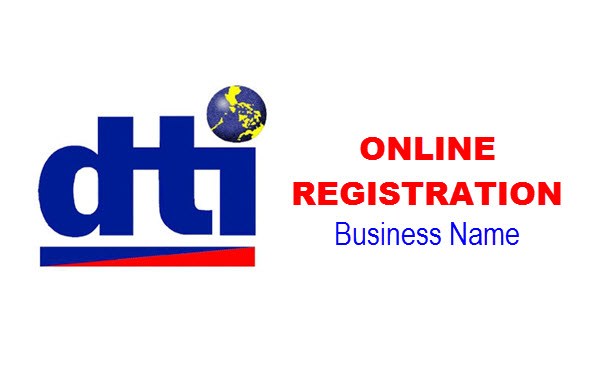
Photo from Pexels | Tirachard Kumtanom
This article was originally published on May 17, 2018 and has been updated to reflect recent legal developments.
The following post does not create a lawyer-client relationship between Alburo Alburo and Associates Law Offices (or any of its lawyers) and the reader. It is still best for you to engage the services of a lawyer or you may directly contact and consult Alburo Alburo and Associates Law Offices to address your specific legal concerns, if there is any.
Also, the matters contained in the following were written in accordance with the law, rules, and jurisprudence prevailing at the time of writing and posting, and do not include any future developments on the subject matter under discussion.
AT A GLANCE:
Registration of a sole proprietor’s trade name with the DTI is relatively faster and less expensive as compared to registration of other forms of business with the Securities and Exchange Commission (SEC), such as corporations.
A sole proprietorship is the oldest, simplest, and most prevalent form of business enterprise. It is an unorganized business owned by one person. The sole proprietor is personally liable for all the debts and obligations of the business. (Excellent Quality Apparel, Inc. v. Win Multi Rich Builders, Inc., G.R. No. 175048, February 10, 2009)
Since only one (1) person—at least on record—owns a sole proprietorship, it is the easiest and least expensive business organization to set up. Since the business does not possess a separate personality and is considered a mere extension of the person of the proprietor, there is no need to do any act just to create a sole proprietorship. However, despite registration not being a necessary step in creating a sole proprietorship, when one intends to use a business name, said business name must be registered with the Department of Trade and Industry (DTI).
Simpler Requirements
Corporations are generally required to comply with more requirements in registering with the SEC. While a sole proprietorship is still required to secure a mayor’s permit, and register with the Bureau of Internal Revenue (and also with the SSS, PhilHealth and Pag-IBIG if there are employees), a great deal of trouble is saved in the process itself in forming the business where there would be no more need to draft articles of incorporation, by-laws, and such other formalities as may be required by the SEC. In registering sole proprietorships with the DTI, the process can go as simple as filling out online registration forms, having a business name approved, paying the registration fees, and after which a certificate of registration may be issued.
Registration Process
One may register a sole proprietorship online through the DTI’s Philippine Business Registry (“PBR”) by logging in through the DTI Business Name Registration System (BNRS) portal.
After clicking “New Application” and upon accepting the Terms and Conditions for business name registration, the applicant will then be required to accomplish online forms by filling up the blank spaces provided, and by choosing among the options available through pull-down menus. The process is pretty much straightforward, and all the applicant has to do is proceed as instructed.
As for registration fees, the amount depends on the scope of registration, whether the business will be operating at the barangay, city/municipal, regional, or national level.
The business name registration fees with the DTI are as follows:
Barangay = PhP 200.00
City/Municipal = PhP 500.00
Regional = PhP 1,000.00
National = PhP 2,000.00
After completing the necessary online forms, a Transaction Reference Number Acknowledgment will be generated, which must be printed and submitted to the DTI Area Office where the business will operate.
Regarding payment of registration fees (mentioned above), aside from paying over the counter at the DTI Area Office, applicants have the option to register either through Bancnet or Globe GCash. Upon receipt of payment, the applicant may claim his Business Name Registration Certificate from the DTI Office, which shall remain valid for a period of five (5) years.
Business Operations
After registration, there is no requirement for the sole proprietor to commence its business operations as a condition of continued registration of its business name (subject, however, to renewal of registration upon the expiration of the five (5)-year period of validity from the time of its issuance). This is unlike the case of corporations, where a corporation shall be deemed dissolved should it fail to organize and commence its business within five (5) years from the date of its incorporation (Sec. 21, Revised Corporation Code).
Related Articles:
Click here to subscribe to our newsletter
Alburo Alburo and Associates Law Offices specializes in business law and labor law consulting. For inquiries regarding legal services, you may reach us at info@alburolaw.com, or dial us at (02)7745-4391/ 09175772207/ 09778050020.
All rights reserved.

Published — May 17, 2018
The following post does not create a lawyer-client relationship between Alburo Alburo and Associates Law Offices (or any of its lawyers) and the reader. It is still best for you to engage the services of your own lawyer to address your legal concerns, if any.
Also, the matters contained in the following were written in accordance with the law, rules, and jurisprudence prevailing at the time of writing and posting, and do not include any future developments on the subject matter under discussion.
Related Topic: How to register your corporation with the SEC
Since only one person—at least on record—owns a sole proprietorship, it is the easiest and least expensive business organization to set up. Since the business does not possess a separate personality, and is considered as a mere extension of the person of the proprietor, there is no need to do any act just to create a sole proprietorship. However, despite registration not being a necessary step in creating a sole proprietorship, when one intends to use a business name, said business name has to be registered with the Department of Trade and Industry (“DTI”).
Registration of a sole proprietor’s trade name with the DTI is relatively faster and less expensive as compared to registration of other forms of business with the Securities and Exchange Commission (“SEC”), such as corporations.
Simpler requirements
Corporations generally need to comply with more requirements in registering with the SEC. Though a sole proprietorship is still required to secure a mayor’s permit, and register with the Bureau of Internal Revenue (and also with the SSS, PhilHealth and Pag-IBIG if there are employees), a great deal of trouble is saved in the process itself in forming the business where there would be no more need to draft articles of incorporation, by-laws, and such other formalities as may be required by the SEC. In registering sole proprietorships with the DTI, the process can go as simple as filling out online registration forms, having a business name approved, paying the registration fees, after which a certificate of registration may be issued.
Registration process
One may register a sole proprietorship online through the DTI’s Philippine Business Registry (“PBR”) by logging in at https://www.business.gov.ph/web/guest/bn-registration.
After clicking “New Application” and upon accepting the Terms and Conditions for business name registration, the applicant will then be required to accomplish online forms by filling up the blank spaces provided, and by choosing among the options available through pull down menus. The process is pretty much straightforward, and all the applicant has to do is to proceed as instructed.
As for registration fees, the amount depends on the scope of registration, whether the business will be operating on a barangay, city/municipal, regional or national level.
The business name registration fees with the DTI are as follows:
- Barangay = Php 200.00
- City/Municipal = Php 500.00
- Regional = Php 1,000.00
- National = Php 2,000.00
After accomplishing the necessary online forms, a Transaction Reference Number Acknowledgment will be generated. Once generated, print them and submit to the DTI Area Office where the applicant intends to do business.
Regarding payment of the registration fees (mentioned above), aside from paying over the counter at the DTI Area Office, the applicant has the option to register either through Bancnet or Globe’s GCash facility. Upon payment, the applicant may now claim his Business Name Registration Certificate from the DTI Office, which shall be valid for a period of five years.
Business operations
After registration, there is no requirement for the sole proprietor to commence its business operations as a condition of continued registration of its business name (subject, however, to renewal of registration upon the expiration of the five-year period of validity from the time of its issuance). This is unlike in the case of corporations where a corporation shall be deemed dissolved should it fail to organize and commence its business transactions within two years from incorporation [See: Sec. 22, Corporation Code].
Some drawbacks
Despite having an easier process of registration, among the drawbacks of sole proprietorship is that the proprietor is personally liable for all the debts and obligations of the business [See: G.R. No. 175048]. It is so because the business has no separate personality and is considered as a mere extension of the person of the proprietor. Therefore, a proprietor cannot claim that he should not be held personally answerable for the obligations suffered by the sole proprietorship, even if such obligations were incurred in the regular course of business. This includes torts committed either by the sole proprietor himself, or by his employees in the course of doing official acts.
Business succession would also be an issue in sole proprietorships. Since the business is considered as one and the same as its owner, the business is terminated upon the death of the proprietor, or when the latter, for any reason, ceases or discontinues doing business.
Taking all this into consideration, it is imperative for every entrepreneur to carefully determine what business organization he intends to operate once he actually engages in business. Should he decide to go for a sole proprietorship and operate under a business name, then he is better off knowing that registration with the DTI is relatively easy. After all, most startup businesses operate under a sole proprietorship because, though it is more limited in potential as compared to a corporation, it is nevertheless a good stepping-stone for any entrepreneurial undertaking.
Alburo Alburo and Associates Law Offices specializes in business law and labor law consulting. For inquiries regarding business organizations and registration, you may reach us at info@alburolaw.com, or dial us at (02)7745-4391/0917-5772207.
All rights reserved.


wonderful publish, very informative. I wonder why the other experts of this sector do not realize this. You must proceed your writing. I’m sure, you’ve a great readers’ base already!
Thank you for any other excellent post. Where else could anybody get that type of information in such an ideal manner of writing? I’ve a presentation subsequent week, and I’m on the search for such information.
Like!! I blog quite often and I genuinely thank you for your information. The article has truly peaked my interest.